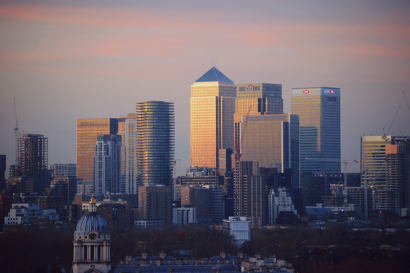AG INSIGHT | 28/07/2023
Net zero is the right choice for Britain

Ben Pummell, Strategic Communications Manager at the Aldersgate Group, outlines the case for net zero in the wake of the of the Uxbridge by-election and warns of the dangers of backsliding on policy progress.
In a tumultuous week for UK politics, the Conservatives narrowly held the seat of Uxbridge and South Ruislip, holding off the challenge of a resurgent Labour Party. The result has triggered debate around the electoral salience of climate and environmental policy, with both parties deciding that the expansion of London’s Ultra Low Emission Zone played a role in the outcome.
The reaction of both party leaders, Sir Keir Starmer calling on colleagues to reflect on the policy, and Rishi Sunak suggesting some green policies may be watered down, has provided a renewed platform for those looking to slow progress towards net zero. These voices, however, are a minority.
It should not be ignored that one by-election driven by local issues is not an accurate reflection of sentiment towards net zero or a referendum on the issue, in fact the Financial Times recently demonstrated the clear public support for decarbonisation. This is particularly pertinent given Labour won Selby and Ainsty with a national platform focusing on ambitious green policy, despite it being a constituency that is home to several carbon intensive industries.
With climate impacts battering Southern Europe and beyond, and the UK facing economic headwinds from inflation, international competition and geopolitical instability, backsliding on net zero would be a significant mistake for any government.
Now is the time to build the economy of the future
The UK has already made laudable progress, becoming the first major economy to set a legally binding net zero target in 2019, driving international action at COP26 and seeing real success in sectors such as offshore wind and green finance. These provide a strong foundation, but it’s now time to deliver across all sectors of the economy. That means providing policy signals to businesses and investors.
The United States and other major economies have woken up to the economic opportunities of net zero, and without swift and decisive action the UK stands to lose out on much-needed inward investment. The prize on offer if the UK does take the requisite steps to support the low carbon economy, however, is significant.
As outlined in Mission Zero, the independent review of net zero, decarbonisation represents the greatest economic opportunity of the 21st century. This assessment is backed by businesses from across the UK economy, a point made clear in a recent letter featuring over 100 of the largest corporations in the country urging the Government to move faster on decarbonisation. They recognise the growth opportunities that the transition presents.
At a macro level, ambitious climate policy could deliver approximately 2% additional economic growth in the UK according to the Climate Change Committee, a crucial consideration at a time of economic stagnation. Closer to home, improved energy security driven by renewables and well insulated homes will improve quality of life and significantly reduce bills. This is in addition to the job creation and productivity gains delivered by low-carbon industries powered by robust domestic supply chains.
Securing these benefits requires a stable, ambitious policy landscape, smart regulation and the right signals for investors. Rolling back progress would provide the opposite, positioning the UK as a volatile market and reducing its appeal to investors. Moreover, it would completely undermine the UK’s claim to leadership on the international stage, just as other major economies are increasing their ambition. This is evident in the 10% drop in UK renewables investment, while similar investment in the US and Germany rose by 24% and 17% respectively in the past year.
The risk is particularly stark in the electric vehicle sector, with reports that government is considering a delay to the ban on new petrol and diesel car sales beyond 2030, despite Tata Motors’ decision to build a battery factory in Somerset demonstrating how a clear direction of travel can boost the economy.
Public and political consensus
One of the great positives of the UK’s political landscape in recent years has been the broad consensus across parties that delivering net zero and nature restoration is in the best interests of the country. It is vital that this remains the case and climate policy does not become a party political issue when its benefits for the public are so clear. It is simply too important to neglect.
Whereas many other nations have become mired in a culture war that delays or rolls back progress, key Conservative, Labour, Liberal Democrat and SNP figures have all made clear the economic opportunities associated with the net zero transition. It is critical that all parties ensure that climate policy, and its myriad benefits, are effectively communicated to a public increasingly concerned about the cost of living. Businesses, as employers of 82% of the population, can support this effort as their decarbonisation initiatives drive prosperity across the country. Allowing a narrative to take hold that suggests we should pause or delay progress on net zero in the name of cost of living would only damage our economy and limit the prosperity of people around the UK now and in the future.
Crucially, this view is reflected by the public, with a majority consistently stating that climate and the environment is among their key concerns, a point that should be carefully considered by all parties in the lead up to an election. In June 2023 YouGov found that 53% of Conservative and Labour voters polled thought that the Government was not doing enough to tackle environmental issues. This is further backed up by new findings from Opinium, which state that a majority of Tory voters planning to switch to Labour in the next election think that the Prime Minister hasn’t done enough to address climate change.
A successful transition to net zero requires clear vision and a commitment to delivery. It is right that the Government should look to ensure it is implemented with minimal disruption to the public, but this should not mean any backsliding on the direction of travel established in recent years. By acting decisively and responding to international competition with clear market signals and ambitious policy, the UK has a once-in-a-generation opportunity to create a strong low-carbon economy that drives growth, lowers bills and creates prosperity across the country.



